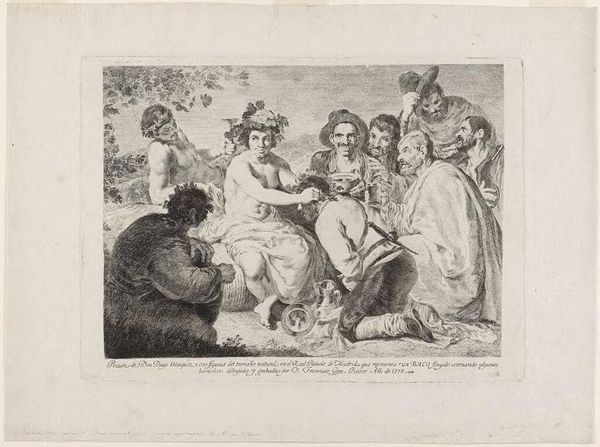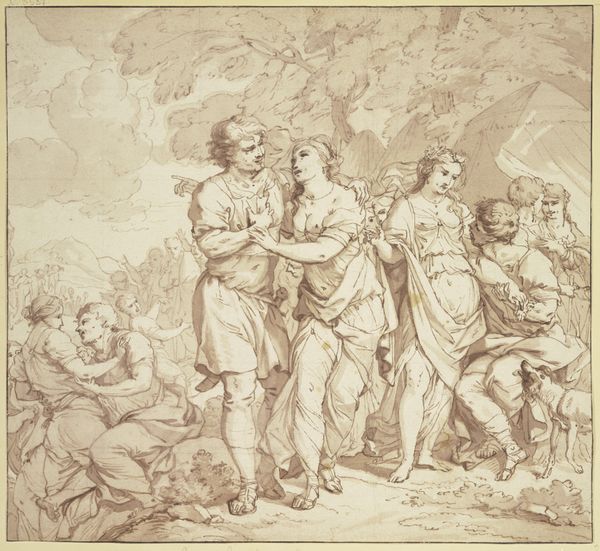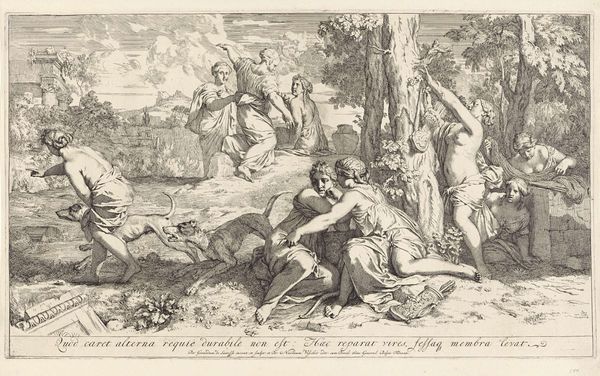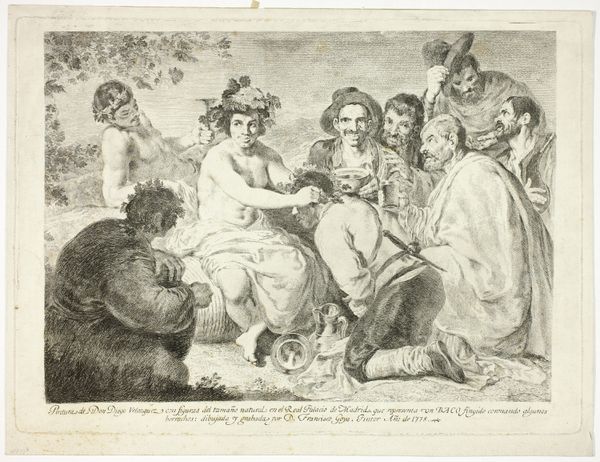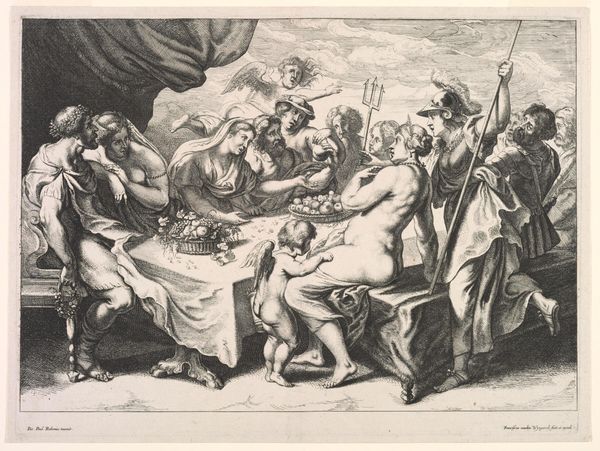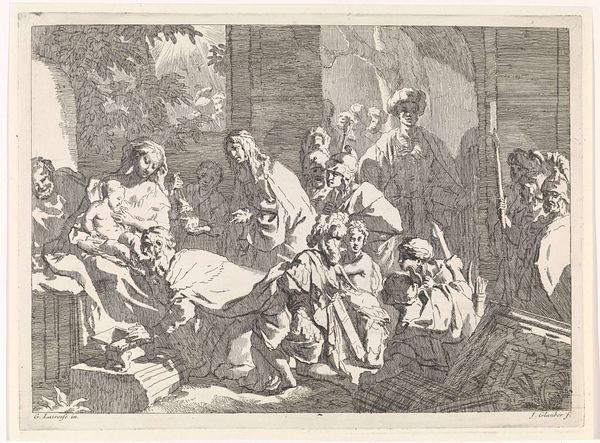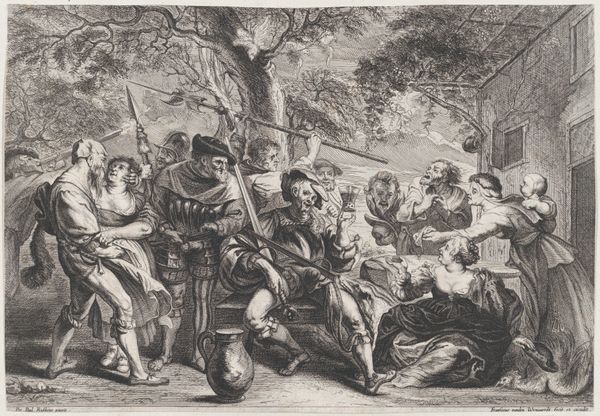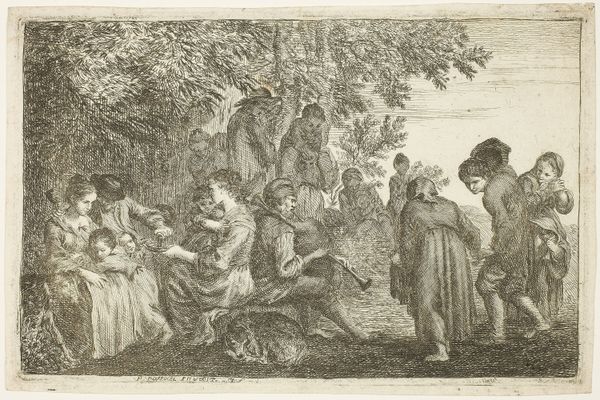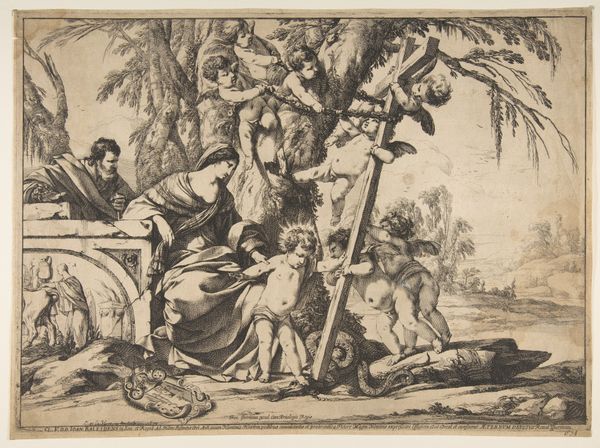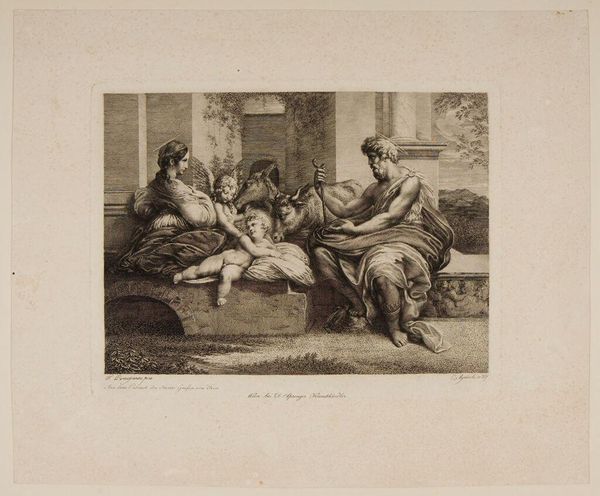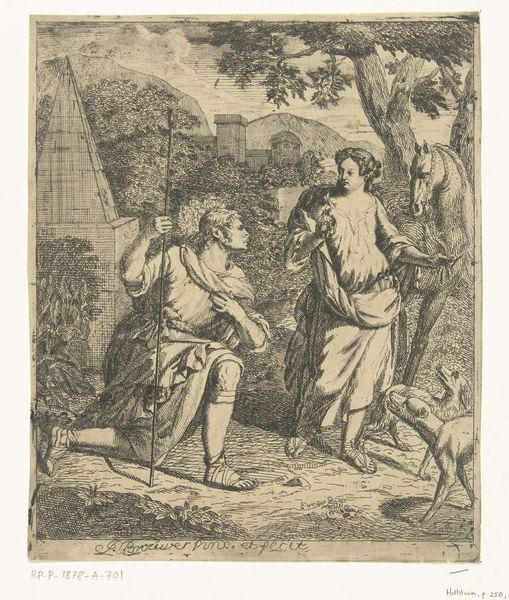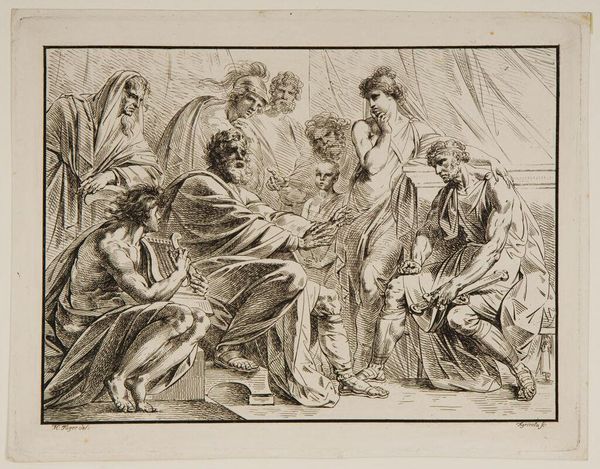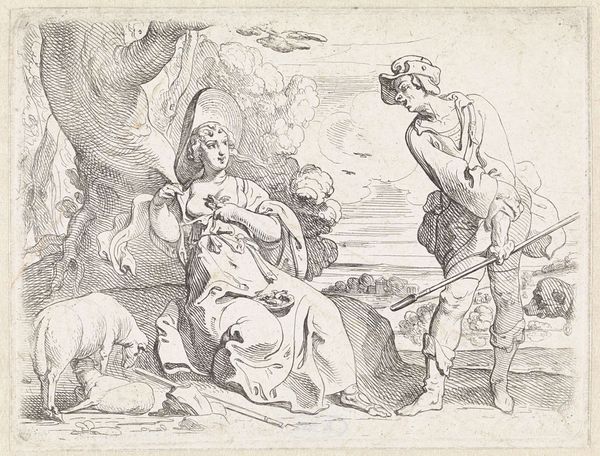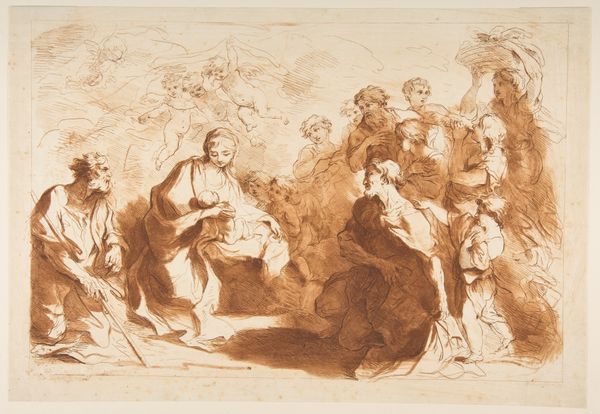
Fotoreproductie van een schilderij door Velázquez, voorstellend de Triompf van Bacchus c. 1857 - 1880
0:00
0:00
juanlaurent
Rijksmuseum
Dimensions: height 233 mm, width 301 mm
Copyright: Rijks Museum: Open Domain
This is Juan Laurent’s photographic reproduction of Velázquez's painting, portraying the Triumph of Bacchus. At its heart, the image presents us with Bacchus, the god of wine, bestowing a wreath upon one of his inebriated followers. The wreath, a symbol of victory and divinity, harkens back to ancient Greek and Roman traditions, where laurel wreaths crowned victors and gods alike. We see a similar motif in classical sculptures of Apollo, god of light and reason. Yet, in Velázquez's interpretation, the wreath takes on a subversive hue. It’s a parody of classical ideals, a "Bacchinal" mockery. Here, divinity descends into the earthly realm, mingling with commoners in a drunken revelry. This scene taps into a primal human desire to escape, to lose oneself in intoxication, a theme that echoes through art history. The cyclical nature of these symbols reveals how the human psyche continually seeks release and transformation, whether through divine transcendence or earthly pleasures. The image engages us on a subconscious level, reminding us of our complex relationship with joy, excess, and the eternal search for meaning.
Comments
No comments
Be the first to comment and join the conversation on the ultimate creative platform.
